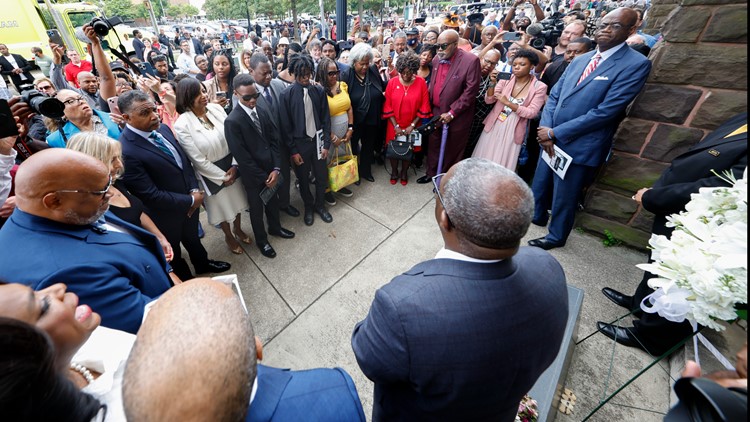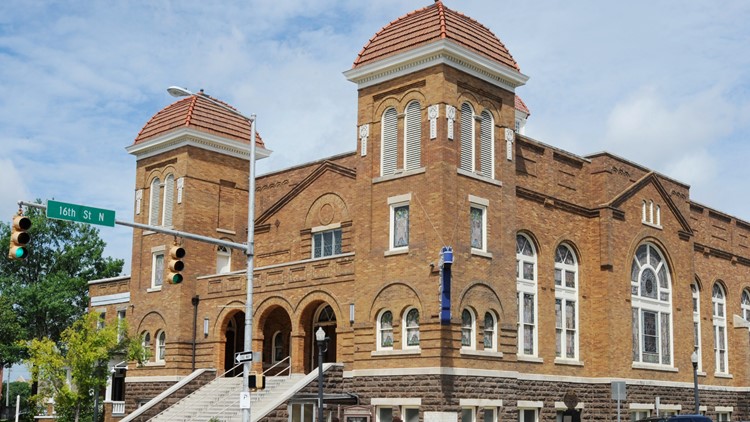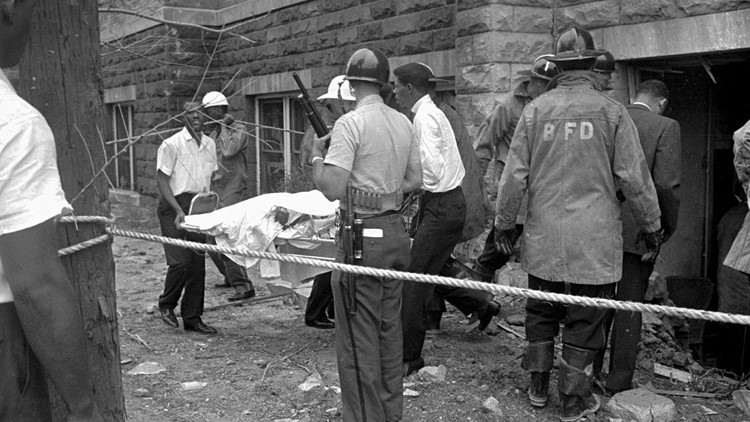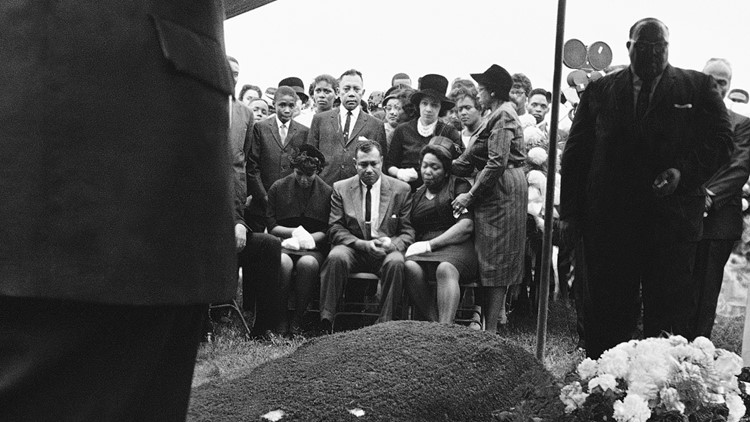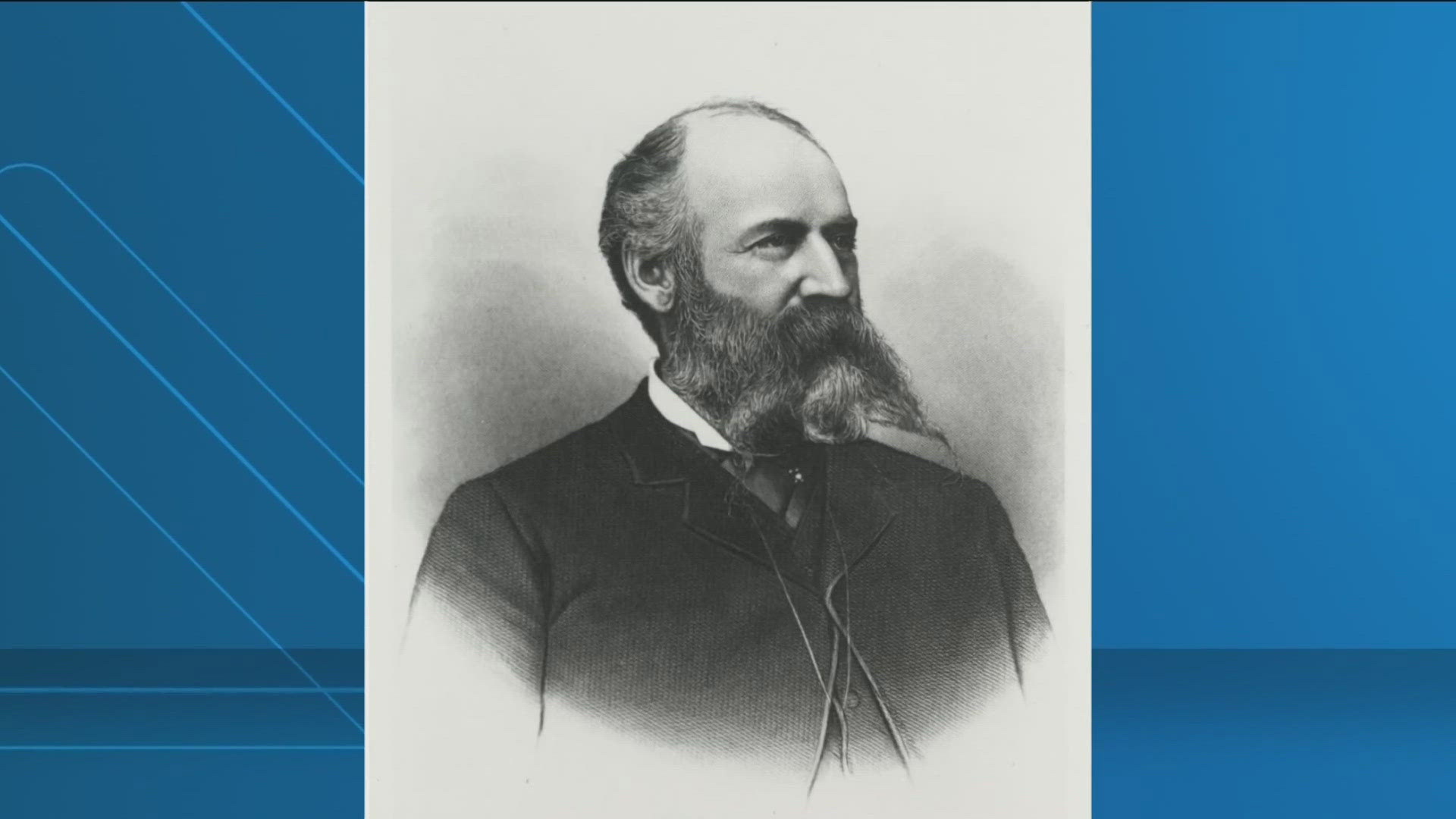BIRMINGHAM, Ala. — Standing at the pulpit of the Birmingham, Alabama, church where four little girls were killed by a Ku Klux Klan bomb in 1963, Supreme Court Justice Ketanji Brown Jackson said the nation must remember and own the uncomfortable moments of its past in order to move forward.
Jackson, the first Black woman to serve on the nation’s highest court, spoke at the 60th anniversary of the Sept. 15, 1963 bombing at 16th Street Baptist Church.
Jackson said they gathered to both grieve the loss of four young lives and remember the toll that was “paid to secure the blessings of liberty for African Americans.” The violence shocked the nation and became a galvanizing moment for the Civil Rights Movement.
“If we are going to continue to move forward as a nation, we cannot allow concerns about discomfort to displace knowledge, truth or history. It is certainly the case that parts of this country’s story can be hard to think about,” Jackson said.
Jackson stressed the importance of a full, unflinching telling of history. She did not mention any of the efforts in Republican-led states to place parameters on how race is discussed in classrooms. Instead, Jackson , who was born in 1970, gave the example of how her own parents made sure, even at a young age, that she learned about the early days of the Civil Rights Movement and even the Birmingham bombing.

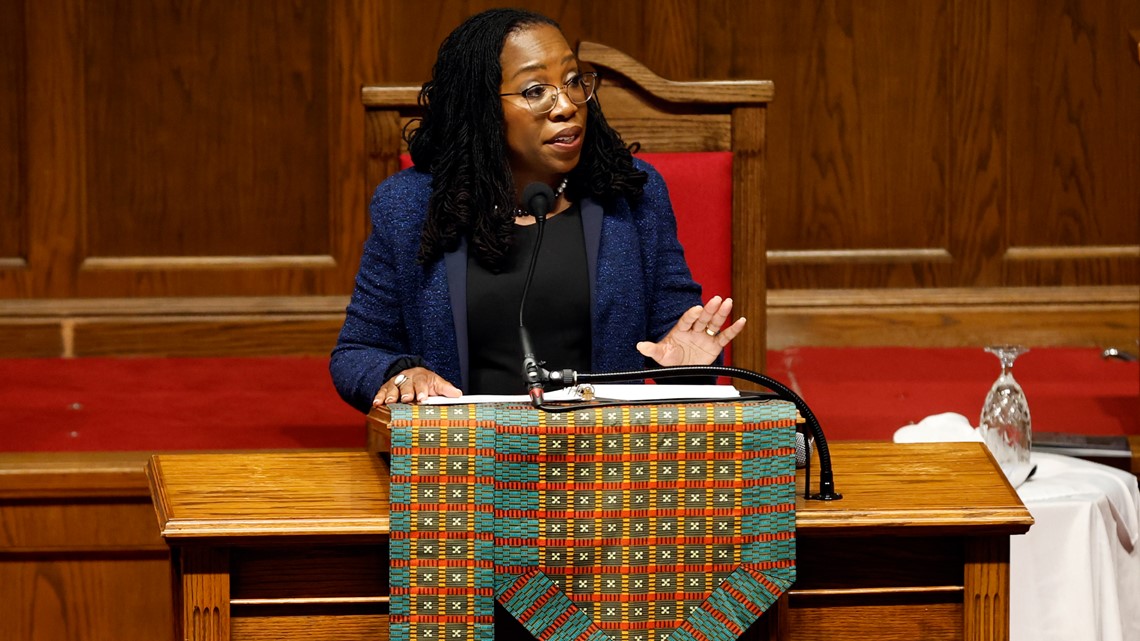
Jackson said she knows that atrocities “like the one we are memorializing today are difficult to remember and relive” but said it is also “dangerous to forget them.”
“We have to own even the darkest parts of our past, understand them and vow never to repeat them,” Jackson said.
Klansmen had placed a bundle of dynamite outside the church under a set of stairs on that day in 1963. The girls were gathered in a downstairs washroom before Sunday services when the blast exploded at 10:22 am. The explosion killed 11-year-old Denise McNair, and Cynthia Wesley, Carole Robertson, and Addie Mae Collins, all 14. A fifth little girl, Sarah Collins Rudolph, the sister of Addie Mae, was in the room and was severely injured — losing an eye to the explosion— but survived.
Hundreds of people, Black and white, filled the church for the remembrance. The church bell tolled four times as the names of the girls were read. The crowd also stood to honor Rudolph, the “fifth little girl” in the room that day.
U.S. Rep. Terri Sewell said they were standing on solemn ground where the senseless deaths “awakened a slumbering consciousness of America and galvanized the Civil Rights Movement.”
Sewell and other speakers on Friday connected the paths of the four girls to that of Jackson, saying the civil rights gains that followed the bombing paved the way for the appointment of the first Black woman on the Supreme Court.
Former U.S. Sen. Doug Jones, who as a U.S. attorney prosecuted the bombers, said Jackson is the personification of the dream that has been 60 years in the making.
The bombing came during the height of the Civil Rights Movement, eight months after then-Gov. George Wallace pledged, “segregation forever,” and two weeks after the Rev. Martin Luther King Jr. delivered his iconic, “I Have a Dream” speech in Washington.


